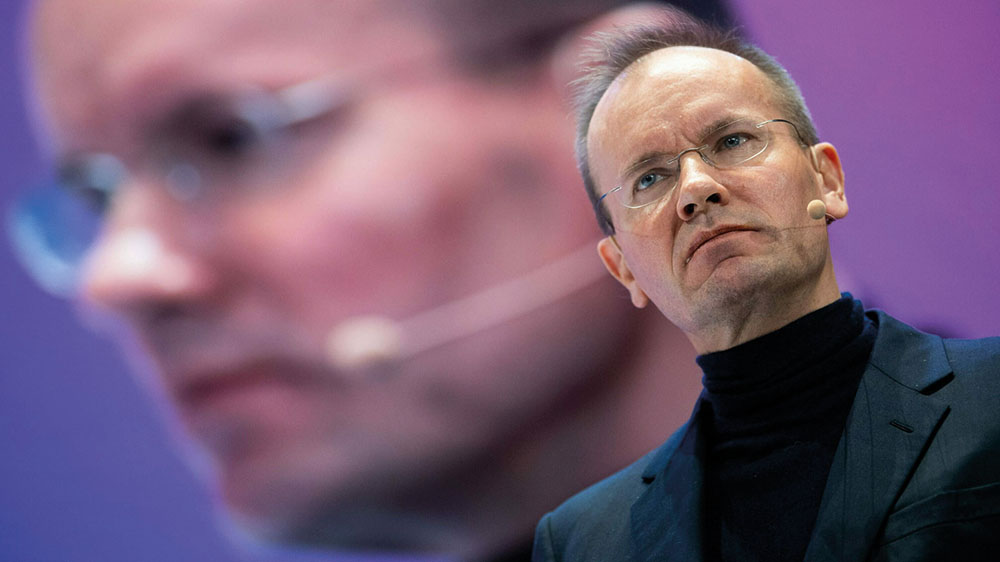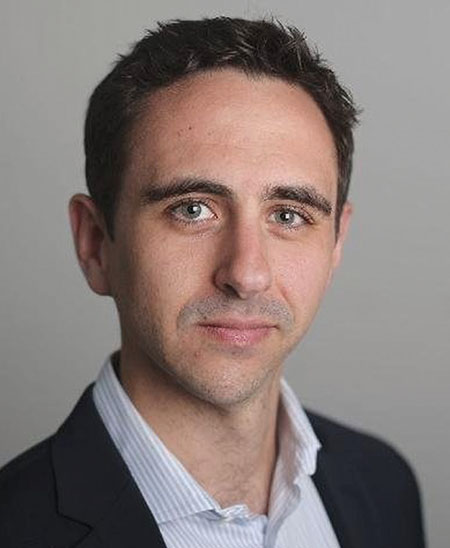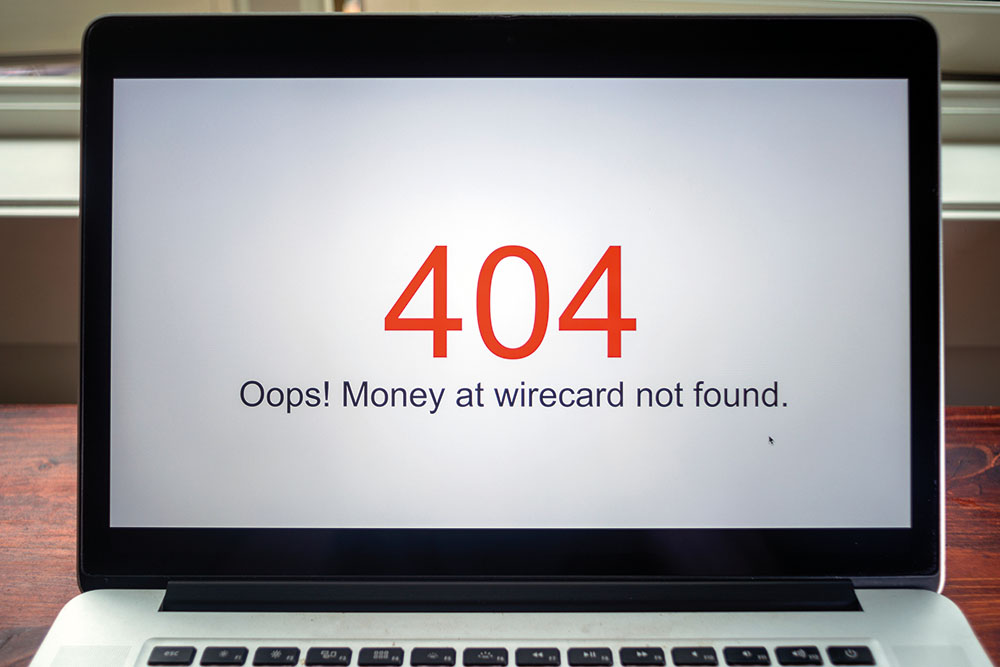With the start of the trial of ex-CEO Markus Braun, here is the background story of the Wirecard fraud. This article was first published in BV Summer 2020.
A missing £1.9bn, an international arrest warrant for a company executive, forgery, subterfuge and intimidation. BV’s HEATHER LEAH SMITH investigates.
HATS OFF to the investigative team at The Financial Times for breaking one of the most intriguing financial scandals of our time.
In mid-June, Wirecard — the German payments processing company once heralded as the standard-bearer of the country’s fintech sector — admitted to some €1.9bn in missing money. Before the end of that month, the company had filed for insolvency. Wirecard’s former CEO, Markus Braun, is being prosecuted for fraud, and his protégé, former COO Jan Marsalek, is on the lam, with an international arrest warrant on his head.

Now, the auditing and regulatory organisations that had backed the company over the past decade are coming under fire, with a growing consensus calling for tighter control of fintech companies across the EU.
The Wirecard saga reads like a Dick Tracy novel, with plenty of plot twists and lots of subterfuge, forgery and intimidation. And maybe even a Russian spy? Perhaps. Salacious details continue to unfurl.
The FT’s Dan McCrum raised the alarm five years ago in his House of Wirecard series, which suggested there might be some holes in the company’s balance sheets. As its profits soared, McCrum’s interest was further piqued.

“Why does the company pay big sums up-front, months before deals complete?,” he wondered. Why were key parts of transactions not fully transparent? Why were millions spent on struggling Asian businesses? Why did accounts filed in Singapore not match totals reported in Germany? What were the €670m of intangibles on the balance sheet really worth?
The journalist’s ponderings seem almost prophetic in hindsight, but at the time resulted in nothing more than a strongly worded letter from Wirecard’s lawyers. That could be seen as lucky; previous detractors who questioned the irregularities had been prosecuted for market manipulation.
Wirecard almost went bust three years after its launch in 1999, but it was resurrected with an infusion of capital from Braun, who became the company’s new CEO. Wirecard skipped the scrutiny endured by most companies and launched an IPO by taking over a defunct call-centre group in 2005. With the acquisition of XCOM the following year, the company rebranded itself and began to issue credit cards and process payments.
After allegations of money mishandling in 2008, EY (Ernst & Young) was appointed as independent auditor. It declared the company clean. Following money laundering allegations in 2016, German financial regulator BaFin accepted Wirecard’s denials and instead investigated the authors of the complaints.
“Why does the company pay big sums up-front, months before deals complete?” — Dan McCrum
Wirecard had convinced investors that its record growth and profits were the result of a better business model, with superior technology. It claimed that strategic M&As and third-party partnerships fuelled expansion and facilitated a foothold in new markets.
From 2011 through 2014, the company used €500m raised from shareholders to establish a regional headquarters in Singapore. It went on a spending spree, acquiring mostly unheard-of, under-performing payment companies across Asia. The odd structuring of the deals — a blue-chip company shelling out large sums for obscure businesses through up-front, pre-close payments into escrow accounts — might have raised some eyebrows, but had little effect on Wirecard’s upward market mobility. From investors and shareholders to auditors and regulators, almost everyone seemed willing to turn a blind eye to the warning signs.
Wirecard executed a €340m takeover of an Indian payments processor in 2015 and cracked the North American market through acquisition of a Citigroup prepaid card business in 2016. By the end of 2017, CEO Braun had secured a €150m margin loan from Deutsche Bank, with much of his seven percent stake in Wirecard serving as collateral.

In August 2018, the company was valued at more than €24bn, and share prices peaked at €195.75 the following month. By the end of the year, Wirecard stock had risen by 42.7 percent year-on-year — while the German DAX index and techDAX fell by 12.5 and 3.1 percent respectively. That year, Wirecard made the DAX 30 index, processed €124.9bn in transactions, and supported 279,000 global clients, including big names such as German supermarket chains Aldi and Lidl, nearly 100 airlines and numerous tech platforms.
“As Europe’s largest fintech, it is seen as a rare German tech company able to challenge the giants of Silicon Valley,” the company trumpeted in its 2018 shareholder report.
But concerns were still percolating, in spite of Wirecard’s eager investors, clean audits and growing reach.
The FT got the scoop when a whistleblower contacted the publication about a possibly squashed internal investigation into suspicions of money laundering and falsified accounts. The employee concerned shared internal documents, including a presentation created for company top brass that flagged €37m in suspicious transactions. Wirecard denied any wrongdoing — and BaFin began to investigate the FT journalists for alleged market manipulation.
“With regards to the accusations made by a whistleblower at the site in Singapore, I would like to point out that both our internal investigations, and the independent external audit into the incidents commissioned by us, did not uncover any indication of so-called ‘round-tripping’ or corruption within the conducted audit activities,” Braun concluded, reassuring shareholders.
“IT IS FRIGHTENING HOW LONG WIRECARD WAS ABLE TO OPERATE WITHOUT BEING OBJECTED TO BY THE AUDITORS” — Schirp & Partner
The scandal hit newsstands in January 2019. Singapore police raided Wirecard’s offices in February, its stock plummeted to below €100, and BaFin stepped in to implement an unprecedented two-month ban on short-selling.
New investigative research revealed that half of Wirecard’s business came from outsourced overseas partners. Personal visits to those partners turned up business owners who were bewildered to learn of the supposed connection. Despite the unflattering media coverage, Wirecard secured a cash infusion of €900m from the Japanese tech investor, SoftBank. That same day, the FT reported that most of the group’s worldwide profits could be traced to three partner companies located in Singapore, the Philippines and Dubai.
Wirecard once again denied any wrongdoing — and sued the FT, along with the Singaporean authorities. But the journalists refused to let it go and instead tightened the screws. More articles appeared in late 2019, accusing the company of fraudulently inflating accounts for its Dubai and Dublin units and counting cash in Philippine escrow accounts in its cash balance declarations.
Then the world quickly became engulfed in a global pandemic, with the Covid-19 virus spreading from country to country and leaving a trail of decimated economies — and overburdened healthcare systems — in its wake. The crisis has dominated the news cycle ever since — until, that is, the special auditor Wirecard had appointed to clear its name, KPMG, announced it would be unable to sign-off on the company’s 2019 audit. It cited obstacles in verifying the lion’s share of profits reported from 2016 to 2018, and questioned €1bn of Wirecard’s cash balances.
The precarious house that Wirecard built began to crumble in early June. BaFin lodged a criminal complaint, and German police raided the Munich headquarters. Within a couple of weeks, the Philippine banks BPI and BDO declaimed documents purporting cash balances of €1.9bn as “spurious”.
Before the end of the month, Wirecard had acknowledged the money was missing, Braun resigned and was arrested, and the company had announced its intention to file for insolvency.
Accounting experts refute claims from EY and BaFin that they were victims of a sophisticated scam pulled off by Wirecard executives. In light of mounting evidence there are accusations that if they weren’t complicit, they were at least complacent.
“Unfortunately, this development was foreseeable,” reported the German law firm overseeing a lawsuit against EY for its dereliction of duty. “It is frightening how long Wirecard AG was able to operate without being objected to by the auditors. After examining the legal situation, Schirp & Partner comes to the conclusion that the certificates could probably not have been issued without a breach of an auditor’s auditing obligations.”
Consumers who had previously not even heard of Wirecard suddenly became aware of the scandal when access to digital funds was blocked with next-to-no warning. The UK-based subsidiary, Wirecard Card Solutions (WCS), supports a number of fintech platforms. Despite being run and regulated separately from the group, WCS was suspended from all operations for several days by the UK Financial Conduct Authority after Wirecard’s insolvency. The move was designed to prevent fraudulent activity from the sinking parent ship, and to protect consumer deposits.

But that caution only exacerbated problems for some of the UK’s most vulnerable populations. “More than half a million customers have benefited from the unique services of accounts such as Pockit and the U Account that use Wirecard,” said Antony Elliott, founder of the Fairbanking Foundation. “Many customers rely on their account day to day for essentials and have no other means of payment.” He called the sudden suspension “disastrous” for clients.
“Given I raised the issue of protecting these accounts back in 2017 — expressing concerns about second class protection — last month’s FCA action was not speedy and decisive so much as too much, too late,” he went on. “The watchdog has been caught off-guard yet again, and by a situation that was easy to monitor, and thousands of consumers have suffered as a result.”
In the end, WCS funds were frozen for less than a week — a minor inconvenience for most, but a serious issue for some. The most severely affected were those who rely on one of the WCS-underpinned fintech companies as the vehicle of their benefits payments, or as an alternative to traditional banking.
At the time of print, four former Wirecard executives have been arrested by German police: Markus Braun, CEO; Burkhard Ley, CFO; Stephan von Erffa, head of accounting; and Oliver Bellenhaus, managing director of Wirecard’s Dubai-based subsidiary.
The Dubai unit was Wirecard’s largest subsidiary, contributing about a quarter of the group’s worldwide revenue. Bellenhaus turned himself in to Munich prosecutors, and has been rumoured to be a co-operative witness, helping to move the investigation forward.
The company’s sudden demise left creditors with an outstanding balance of €3.5bn. According to Anna Leiding, a prosecutor on the Wirecard investigation, “those funds are most probably lost”.
“In interrogations,” she said, “we were told about a strictly hierarchical system that was shaped by an esprit de corps and pledges of allegiance to the chief executive as a leader.”




























